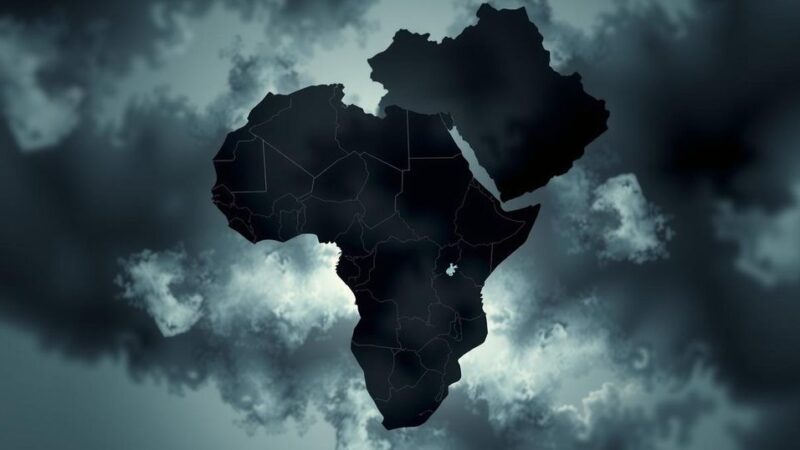On December 14, Cyclone Chido hit Mayotte with unprecedented wind speeds, resulting in extensive damage and loss of life despite early warnings. Météo-France indicated that this was the strongest cyclone in 90 years. The cyclone continued onto Mozambique, raising questions regarding the impact of climate change on its formation and intensity, while future forecasts suggest more severe weather patterns may emerge in the region.
Tropical cyclone Chido struck Mayotte on December 14, exhibiting wind speeds exceeding 200 km/h, and gusts surpassing 225 km/h. This cyclone marked the most potent storm to impact Mayotte in nearly a century, as noted by Météo-France. Accompanying the fierce winds were torrential rains, totaling 176 mm over a span of 12 hours, and perilous seas with wave heights averaging above 5 meters, resulting in significant damage, including the destruction of Météo-France’s observation facilities.
Cyclone Chido’s severe impact on Mayotte has raised concerns over the island’s preparedness for such catastrophic events. Mayotte, characterized by informal housing structures, was ill-equipped to cope with the cyclone’s intensity. The storm’s trajectory skirted the larger Madagascar, which typically weakens storms before they reach smaller islands, leading to its unprecedented strength upon landfall. Timely warnings were issued by Météo-France, yet the devastation still resulted in loss of life.
In conclusion, Cyclone Chido has underscored the vulnerability of Mayotte to severe meteorological events, especially given its unusual track and strength. Despite warnings issued well in advance, the preparedness of the island was inadequate. The future forecasts predict continued cyclone activity in the region, emphasizing the need for enhanced disaster preparedness and response strategies.
Original Source: wmo.int







